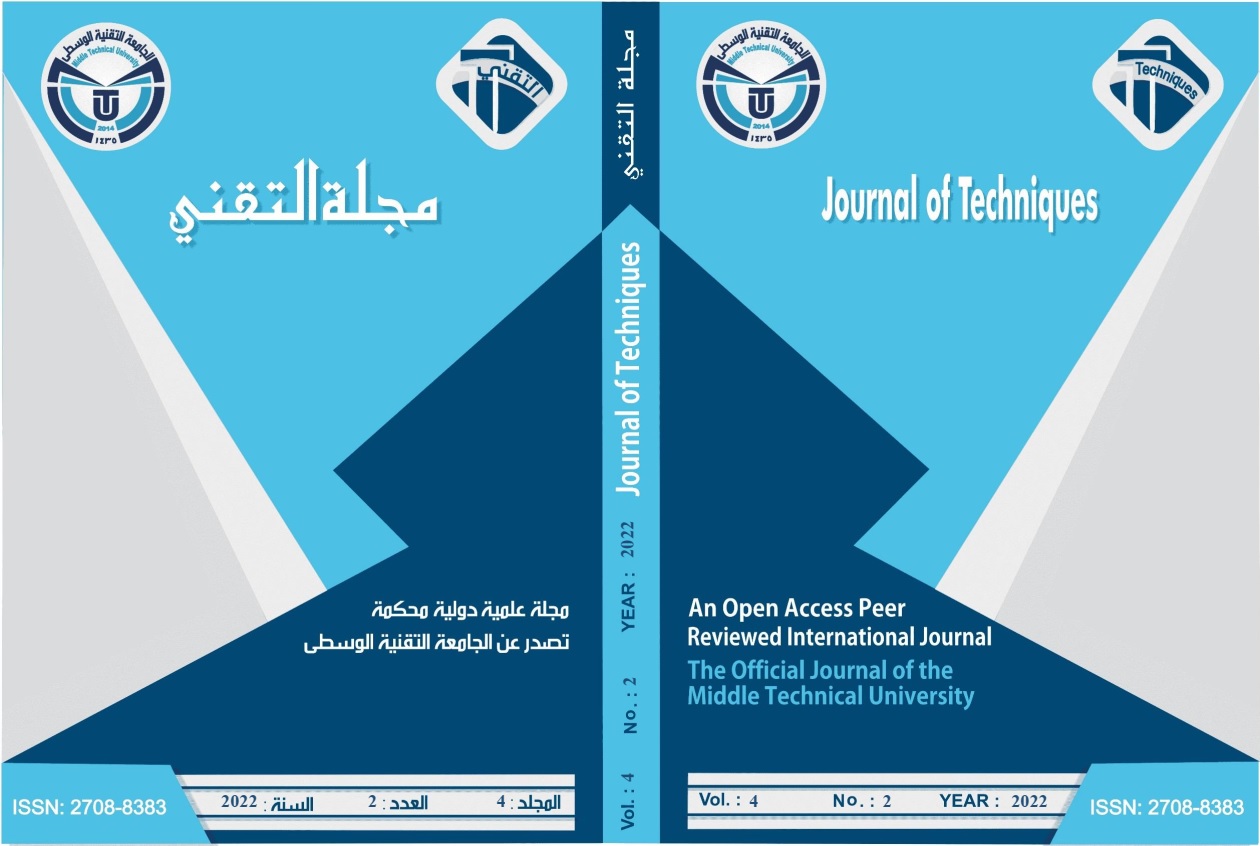The Effects of HLA-G Gene Polymorphism and sHLA-G Level in Women with Threatened Abortion
DOI:
https://doi.org/10.51173/jt.v4i2.505Keywords:
sHLA-G, HLA-G gene, snps, Threatened Abortion, PregnancyAbstract
The most frequent first-trimester problem is a miscarriage, which affects 20% of pregnancies. In approximately 20-25 percent of confirmed pregnancies, threatened miscarriage is indeed a risk factor that may develop or resolve. This study aimed to assess the impact of certain HLA-G gene SNPs and sHLA-G serum levels to determine whether they play a role in threatening abortions. This study included 90 subjects who were separated into three groups: 30 patients (threatened abortion patients), and 60 controls (30 healthy pregnant women and 30 healthy non-pregnant women). All of the study groups were between the ages of 20 and 35 years old. The mean sHLA-G level in pregnant women's sera was found to be 430.38 Pg/ml, compared to 307.98 Pg/ml in the threatened abortion group and 192.11 Pg/ml in non-pregnant women (P= 0.001). The rs2249863 T/C/G was a statistically significant difference between the T allele and the G allele, with an odds ratio of 1.720 (p-value = 0.038). In conclusion, serum sHLA-G levels in threatened abortion patients' sera are significantly lower than in normal pregnant women. Allele frequencies of HLA-G gene snps were non-significant changes between TA patients and controls, except rs2249863 T/C/G.
Downloads
References
Pontius E, Vieth JT. Complications in early pregnancy. Emergency Medicine Clinics. 2019 May 1;37(2):219-37.
Hashimoto A, Sugiura K, Hoshino A. JB Special Issue–Review Impact of exosome-mediated feto-maternal interactions on. J. Biochem. 2021;169(2):163-71.
Mahdi BM, editor. Human leukocyte antigen (Hla). BoD–Books on Demand; 2019 Mar 13.
Madden K, Chabot-Richards D. HLA testing in the molecular diagnostic laboratory. Virchows Archiv. 2019 Feb;474(2):139-47.
Amodio G, Gregori S. HLA-G genotype/expression/disease association studies: success, hurdles, and perspectives. Frontiers in Immunology. 2020 Jul 8;11:1178.
Persson G, Stæhr CS, Klok FS, Lebech M, Hviid TV. Evidence for a shift in placental HLA-G allelic dominance and the HLA-G isoform profile during a healthy pregnancy and preeclampsia. Biology of Reproduction. 2021 Oct;105(4):846-58.
Jacobsen DP, Lekva T, Moe K, Fjeldstad HE, Johnsen GM, Sugulle M, Staff AC. Pregnancy and postpartum levels of circulating maternal sHLA-G in preeclampsia. Journal of Reproductive Immunology. 2021 Feb 1;143:103249.
Ferreira LM, Meissner TB, Tilburgs T, Strominger JL. HLA-G: at the interface of maternal–fetal tolerance. Trends in immunology. 2017 Apr 1;38(4):272-86.
Xu HH, Lin A, Yan WH. HLA-G-mediated immunological tolerance and autoimmunity. InTranslational Autoimmunity 2022 Jan 1 (pp. 265-295). Academic Press.
Zidi I, Rizzo R, Bouaziz A, Laaribi AB, Zidi N, Di Luca D, Tlili H, Bortolotti D. sHLA-G1 and HLA-G5 levels are decreased in Tunisian women with multiple abortions. Human Immunology. 2016 Apr 1;77(4):342-5.
Keskin F, Karatas A, Albayrak M, Bıyık I, Erkan M, Demirin H, Dilbaz S. Maternal serum soluble HLA-G levels in missed abortions. Medicina. 2013 Oct;49(10):68.
Mosaferi E, Gharamaleki NA, Farzadi L, Majidi J, Babaloo Z. The study of HLA-G gene and protein expression in patients with recurrent miscarriage. Advanced Pharmaceutical Bulletin. 2019 Feb;9(1):70.
Carlini F, Traore K, Cherouat N, Roubertoux P, Buhler S, Cortey M, Simon S, Doumbo O, Chiaroni J, Picard C, Di Cristofaro J. HLA-G UTR haplotype conservation in the Malian population: association with soluble HLA-G. PloS one. 2013 Dec 23;8(12):e82517.
Kuroshli Z, Gourabi H, Bazrgar M, Sanati MH, Esteki MZ. The relationship between HLA-G gene polymorphisms and repeated implantation failure in infertile couples undergoing assisted reproductive technique. Iranian Journal of Allergy, Asthma, and Immunology. 2015 Oct 20:535-42.
Arjmand F, Ghasemi N, Mirghanizadeh SA, Samadi M. The balance of the immune system between HLA-G and NK cells in unexplained recurrent spontaneous abortion and polymorphisms analysis. Immunologic research. 2016 Jun;64(3):785-90.
Kim SK, Chung JH, Kim DH, Yun DH, Hong SJ, Lee KH. Lack of association between promoter polymorphisms of HLA-G gene and rheumatoid arthritis in the Korean population. Rheumatology international. 2012 Feb;32(2):509-12.
Agrawal D, Prakash S, Misra MK, Phadke SR, Agrawal S. Implication of HLA-G 5′ upstream regulatory region polymorphisms in idiopathic recurrent spontaneous abortions. Reproductive BioMedicine Online. 2015 Jan 1;30(1):82-91.
Hu B, Jin X, Xu GT. Genetic variants associated with endometriosis patients: a systematic review. Prec Med Res. 2021;3(1):2.
Khasevani L, KHALAJ KM, Ebrahimi BB. Association of rs2249863 and rs1233334 polymorphisms of the upstream region of HLA-G gene with recurrent spontaneous abortion in women from Northwest of Iran during 2018-2019.
Nowak I, Malinowski A, Barcz E, Wilczyński JR, Wagner M, Majorczyk E, Motak-Pochrzęst H, Banasik M, Kuśnierczyk P. Possible role of HLA-G, LILRB1 and KIR2DL4 gene polymorphisms in spontaneous miscarriage. Archivum immunologiae et therapiae experimentalis. 2016 Dec;64(6):505-14.
Rizzo R, Bortolotti D, Bolzani S, Fainardi E. HLA-G molecules in autoimmune diseases and infections. Frontiers in immunology. 2014 Nov 18;5:592.
Najafi Z, Khalaj-Kondori M, Hosseinpour Feizi MA, Abbasaliizadeh S. Haplotype Effect of Two Human Leukocyte Antigen-G Polymorphisms of rs1736933 and rs2735022 on the Recurrent Pregnancy Loss. Journal of Inflammatory Diseases. 2021 Jan 10;24(5):398-409.

Downloads
Published
How to Cite
Issue
Section
License
Copyright (c) 2022 Ahmed H. Merdas, Mayada N. Iqbal, Nisreen Sherif Alyasiri

This work is licensed under a Creative Commons Attribution 4.0 International License.
















